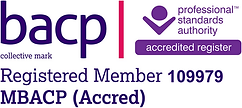Mark your calendars! February 6th, 2025, is Time to Talk Day, an annual opportunity to spark meaningful conversations about mental health. This event, run by Mind and Rethink Mental Illness, in partnership with Co-op, is all about coming together to have the UK’s biggest mental health conversation.
Why is Talking About Mental Health So Important?
Did you know that 1 in 4 people will experience a mental health problem in any given year? Despite this, too many of us feel isolated, ashamed, or even invisible because of the stigma surrounding mental health. Research from Time to Talk Day 2024 revealed a worrying trend: many people, especially younger generations, are avoiding conversations about their feelings.
- 69% of 16–24-year-olds and 72% of 25–34-year-olds admitted to bottling up their emotions and putting on a brave face.
While it might feel easier to say “I’m fine” and carry on, suppressing our feelings can harm our emotional and physical well-being. Talking, on the other hand, is a simple yet powerful way to reduce feelings of loneliness and build connection.
What Is Time to Talk Day All About?
Time to Talk Day encourages everyone—friends, families, communities, and workplaces—to have open conversations about mental health. It’s not about being a therapist or having all the answers. It’s about making space for real, human connection.
Whether you share tea and cake with a friend, post on social media using #TimeToTalk, or host a local event, every conversation matters.
How Do I Start a Conversation?
Talking about mental health can feel daunting, but here are some simple ways to make it easier:
1. Start Small
You don’t have to host a big event or be an expert. A simple “How are you really doing?” can open the door to meaningful dialogue.
2. Pick the Correct Setting
Sometimes, side-by-side conversations—like walking or driving together or cooking – feel less intense than sitting face-to-face. Don’t let the search for the “perfect” place to have your conversation hold you back, as you can see, there are ways and means to do it.
3. Ask Open-Ended Questions
Avoid yes-or-no questions. Instead, try:
- “What’s been on your mind lately?”
- “How does that make you feel?”
- “Tell me what’s been going on.”
4. Just Listen
Resist the urge to fix or solve someone’s problems. Often, people just need to feel heard and validated. Bearing witness to someone’s difficult experience can be very powerful and healing. Basically, if your friend or family member would like advice, they’ll ask for it.
5. Be Patient
Not everyone will be ready to talk, and that’s okay. The fact that you tried could make them feel more comfortable opening up in the future.
Simple Ways to Get Involved
You don’t have to reinvent the wheel to take part in Time to Talk Day. Here are some ideas:
- Text a Friend: Check in and let them know you’re there for them.
- Host a Tea and Talk Event: Gather a few people for tea and biscuits while sharing stories or raising awareness.
- Spread the Word: Put up posters at work, school, or your local community centre.
- Use Social Media: Share your thoughts or resources using #TimeToTalk.
- Run a Lunch-and-Learn: Bring colleagues together for an informal session about mental health.
Sharing Your Own Feelings
Opening up about your own struggles can feel vulnerable but is often incredibly freeing. Here are a few tips to help you start that conversation:
- Find What Works for You: Whether it’s a phone call, a letter, or a face-to-face chat, choose a method that feels most comfortable.
- Be Honest: Explain how your feelings are affecting your life to help others understand.
- Start When You’re Ready: There’s no rush. It’s about finding the right time and place.
The Ripple Effect of Talking
Every conversation about mental health has the potential to create a ripple effect. When we talk, we normalise the challenges that so many of us face. It helps break down stigma and builds a culture where no one has to feel ashamed or isolated.
Ready to Join the Nation’s Biggest Mental Health Conversation?
Whether you’re hosting an event, chatting with a friend, or just listening, your contribution matters. Small actions can lead to big change. Download a resource pack to get started here.
Let’s make February 6th a day to remember. All in all, we can create a world where mental health is something we all feel comfortable talking about – on Time to Talk Day and beyond.
What do you plan to do this Time to Talk Day? Share your ideas in the comments!






